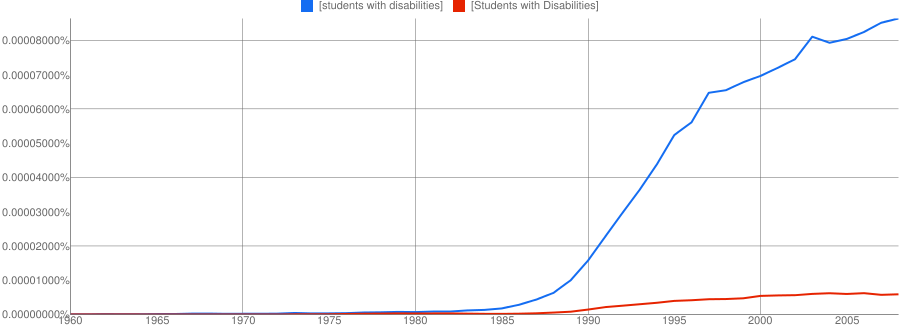In most cases "students with disabilities" is a specific phrase but not a proper noun. As jargon in fields like Education and Disability Studies, I've usually encountered it and similar forms (people with disabilities) in lowercase. Here is an Ngram chart from 1980 to ~2010.

I pulled a couple of articles to examine their use of nomenclature.
This one always puts "students with disabilities" as lowercase, alongside "male" and "female" (also lowercase) but puts "Black," "White," "Hispanic," and other racial categories in uppercase (example is Table 1 on p. 167). This study also conformed to that standard, e.g.:
Black students with disabilities had significantly lower scores than White students with disabilities on both LWI (–0.17 standard deviations) and PC (–0.23 standard deviations) at age 12.67.
It's only going to be a proper noun if an author deliberately makes it one.

